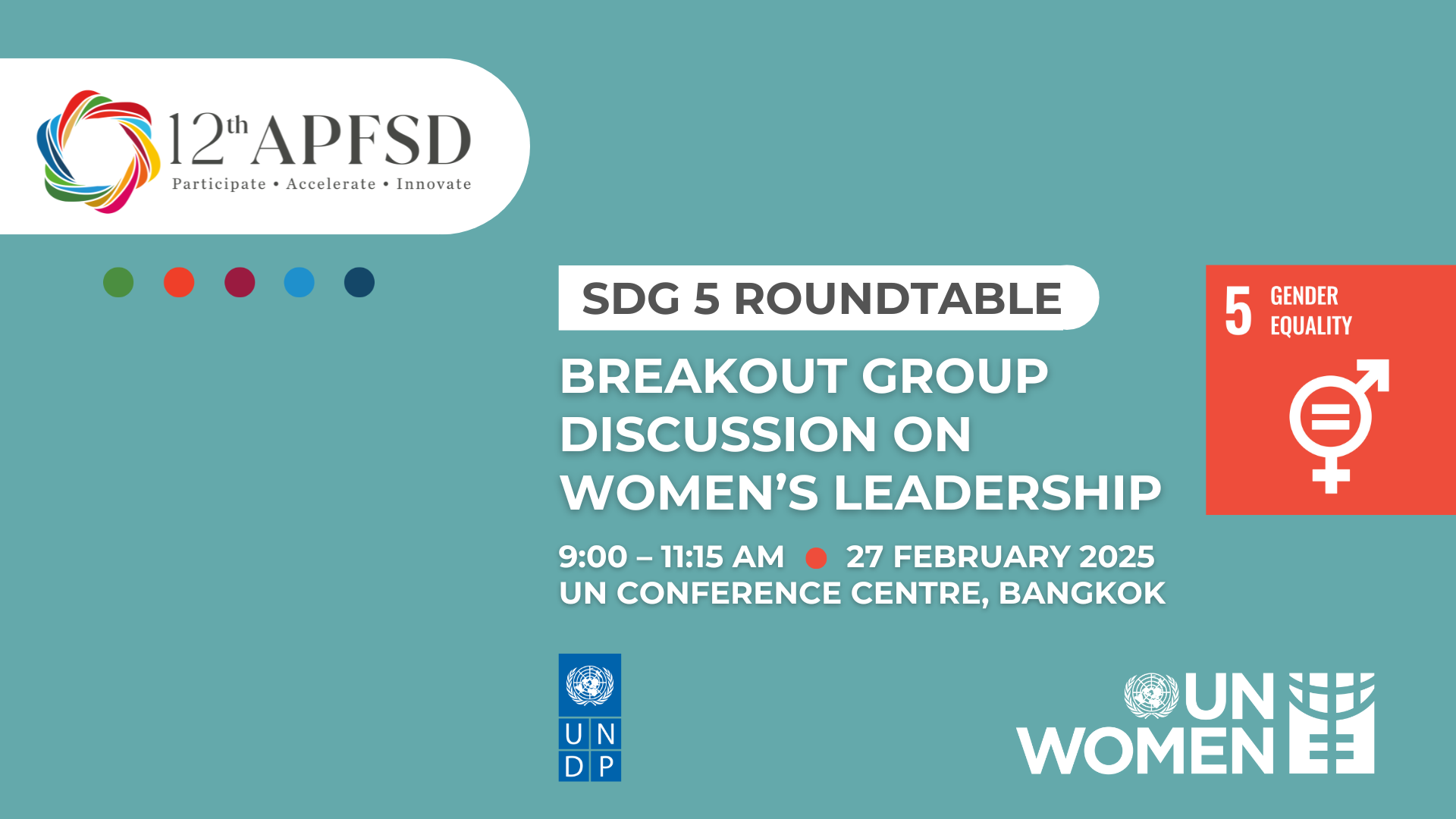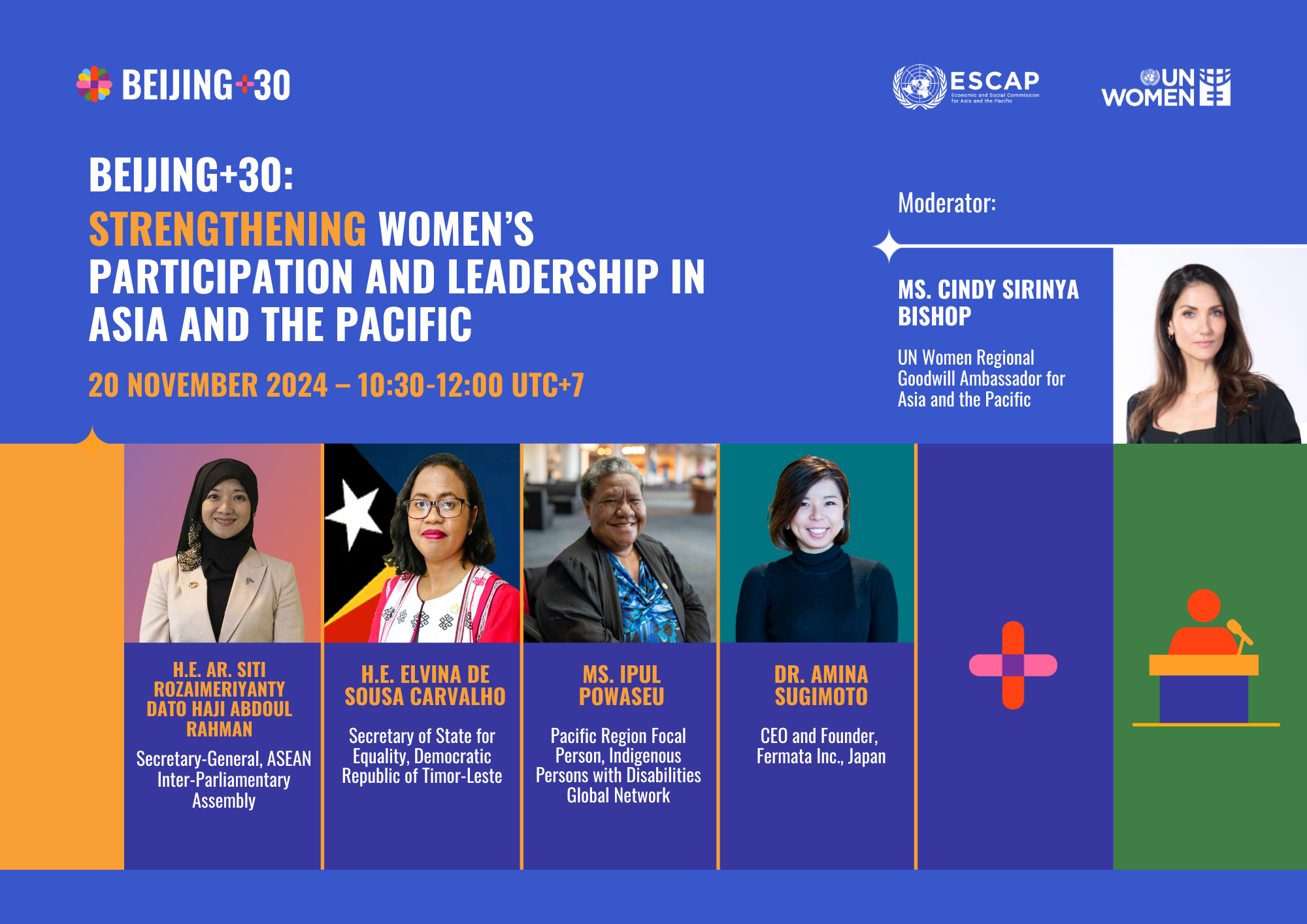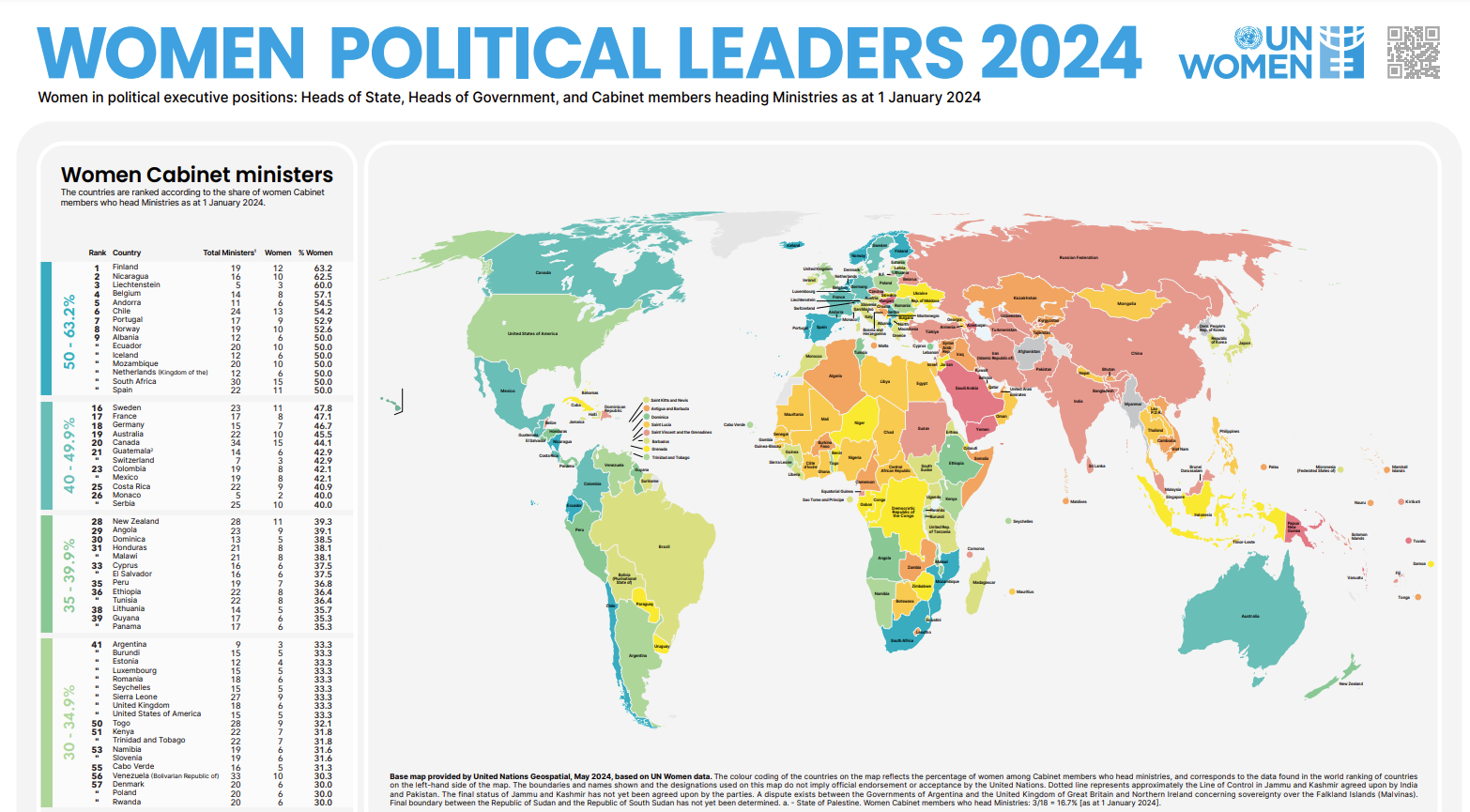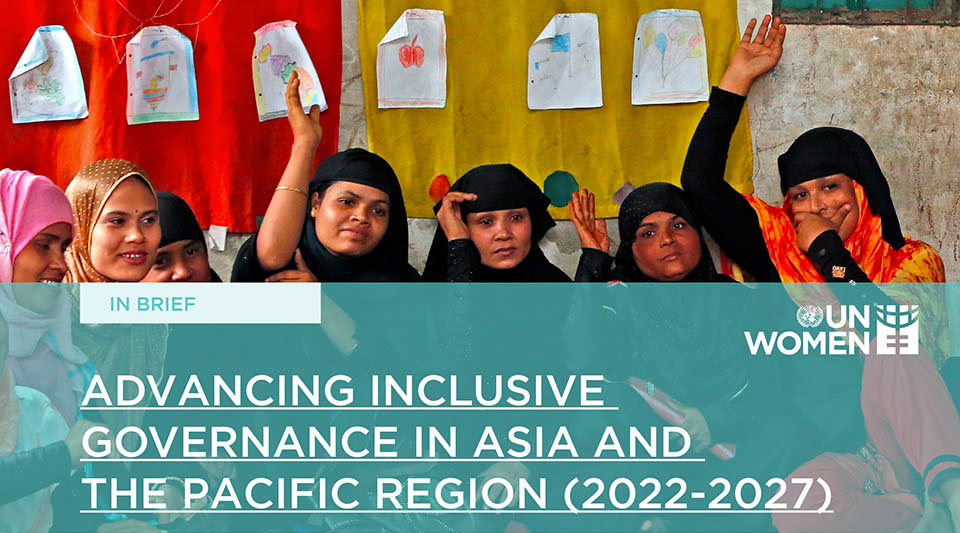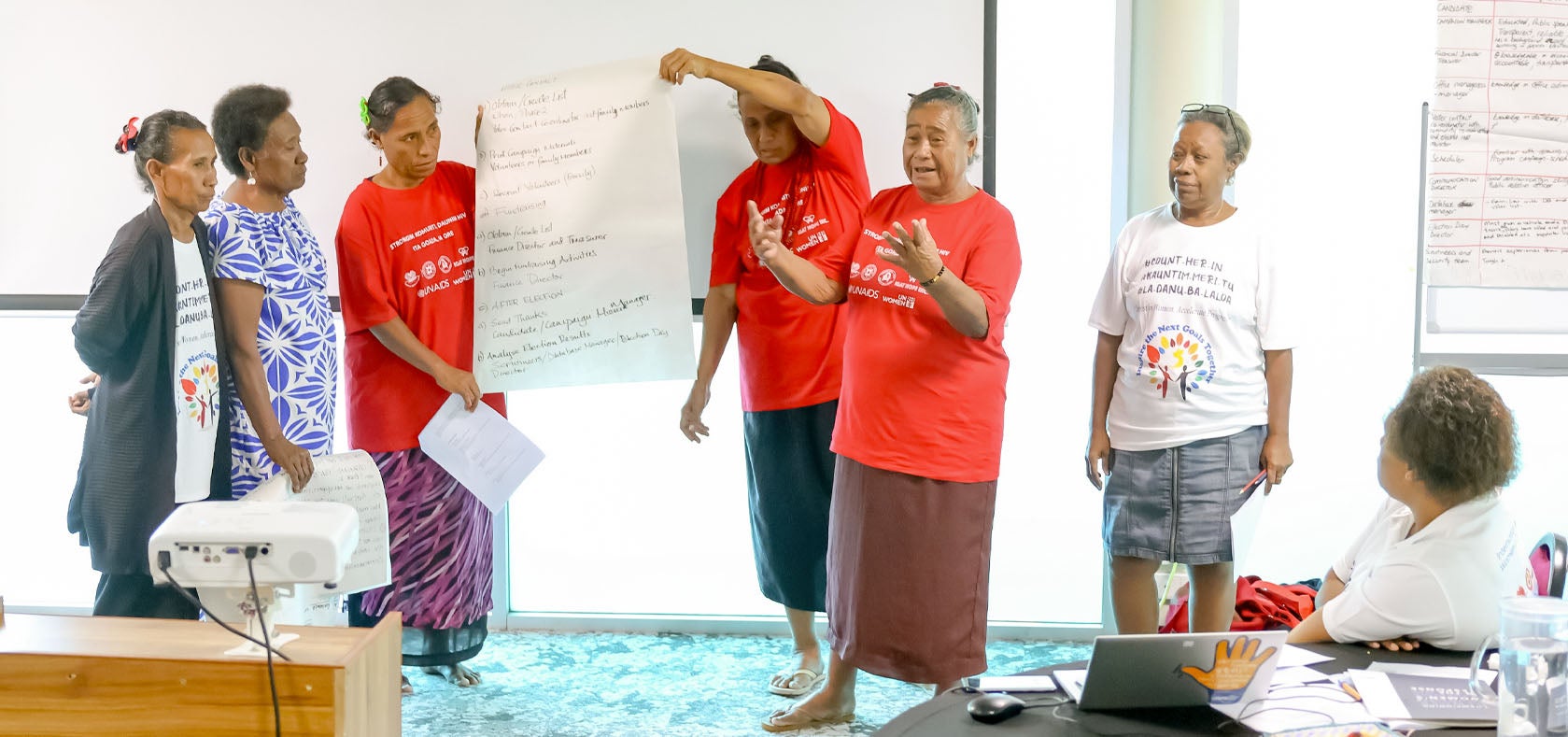
Political Participation of Women
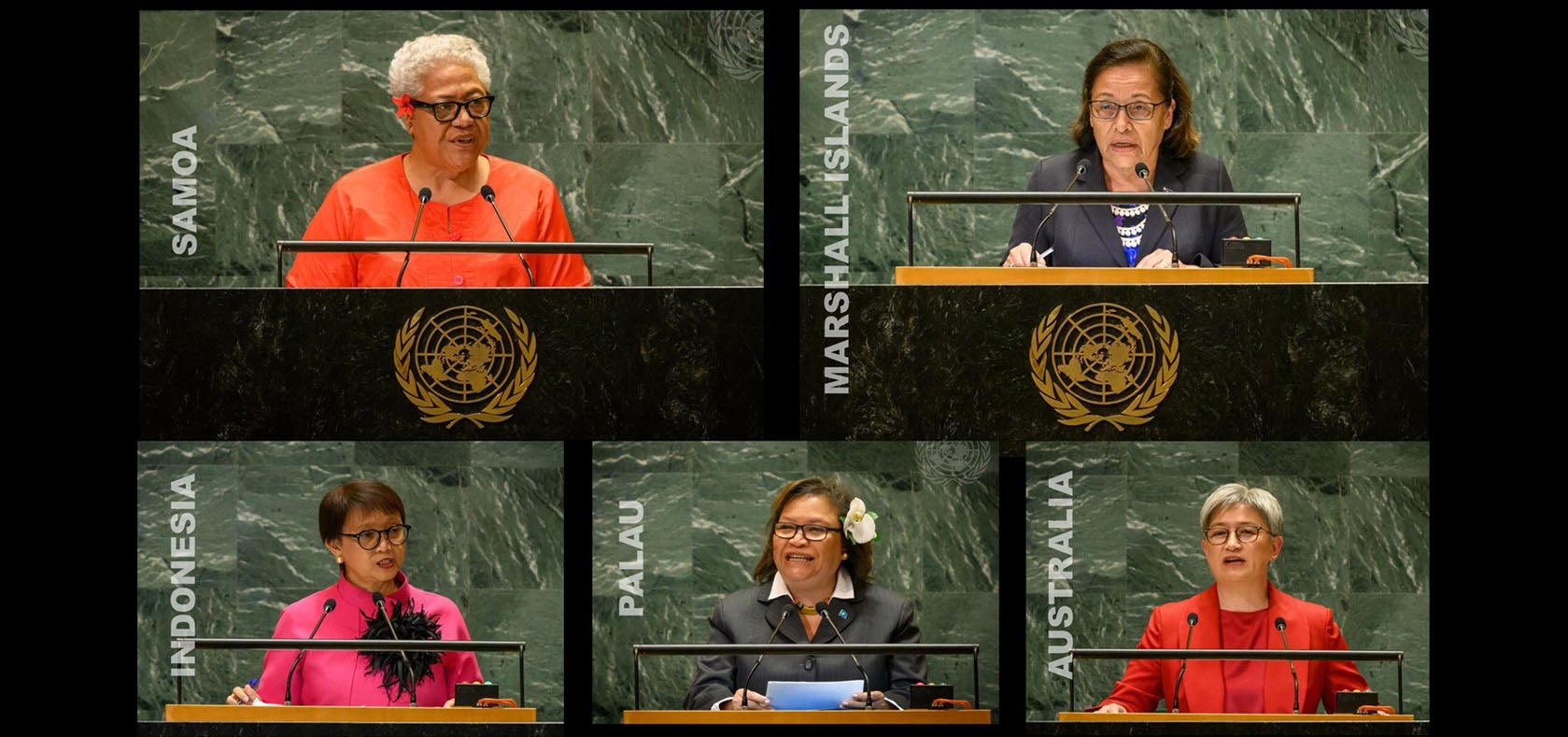
Studies show higher numbers of women in parliament generally contribute to stronger attention to women's issues. Women's political participation is a fundamental prerequisite for gender equality and genuine democracy. It facilitates women's direct engagement in public decision-making and is a means of ensuring better accountability to women.
Political accountability to women begins with increasing the number of women in decision-making positions, but it cannot stop there. What is required are gender-sensitive governance reforms that will make all elected officials more effective at promoting gender equality in public policy and ensuring their implementation.
One of the pillars of UN Women's work is advancing women's political participation and good governance, to ensure that decision-making processes are participatory, responsive, equitable and inclusive. Efforts are focused through strategic entry points that can advance the status of women by catalysing wide-ranging, long-term impacts.
Support is provided to equip women to translate the Convention on the Elimination of All Forms of Discrimination against Women (CEDAW), now ratified by the majority of the world's governments, into legal guarantees of gender equality. Another strategy is through working with multiple stakeholders, like women's organizations, governments, the UN system and the private sector, to bring more women into government, train women leaders, and boost women's skills to actively participate in elections as candidates and voters.
UN Women in Action

Papua New Guinea: Women’s Leadership Training
Ahead of Local Level Government elections in Papua New Guinea in 2024, UN Women conducted training for women leaders on political leadership and campaign strategy. The training aimed to enhance the capacity of women leaders at the subnational level by equipping them with knowledge of political systems, campaign planning, messaging, and communication strategies, and by fostering networking. Read more
Rural women leading in Timor-Leste
In Timor-Leste, UN Women is supporting women's political participation through a collection of programmes aimed at building the capacity of women to play effective roles as political actors and to improve the gender-responsiveness of governance structures.
The Programme for Enhancing Rural Women's Leadership and Participation in Nation Building in Timor-Leste (PERWL) targets Timorese rural women, with the aim of building the capacity of women leaders and groups at the national and local levels to participate in the process of nation building.
Objectives of PERWL:
- To promote transformative leadership, politics and communities through the active and reciprocal participation of women as members of constituencies and potential leaders in the political processes and governance at the local and community levels
- To enhance the understanding, contribution of and benefits for rural communities, in particular women, on gender mainstreaming the nation building process as a method to further promote the process of transformative leadership and citizenship
- To contribute to government planning, programming, policy development and budget allocation that is based on and responds to the socio-economic situation, needs and rights of rural women
Activities supporting increased participation of women in politics include:
- Pre-electoral training of 1,265 women candidates in 13 districts. Training focused on the concepts and principles of transformative leadership, politics and communities™ in order to prepare women for official duties and, if unelected, as active citizens within their local communities. Out of the 1,265 women leaders trained on transformative leadership, 52 per cent contested the elections and 55 per cent of those were elected. Moreover, originally targeting only women, the Programme had later trained both male and female members of the village councils in 13 districts in response to demand.
- Creation of a set of training modules about 'Strengthening the Role of Women in the Suco Council'. The OPE and INAP trainers were trained on the use of the training modules.
- UN Women has worked closely with the Local Development Program (LDP) in the implementation a pilot decentralization program in two districts: Bobonaro and Lautem. This program looks at different models of governance decentralization, such as sub-district and district assemblies, and PERWL has been interested in what these alternative models may mean for women's leadership and political participation in rural areas.
- UN Women has conducted dialogue between national women leaders and women representatives in the suco councils in 13 districts, an opportunity for women in the districts to interact and raise their concerns with national women leaders representing government ministries, NGOs and women parliamentarians. The dialogue led the participants to agree on the strategies to improve linkages and support systems between national and local women leaders.
- To consolidate the continued advocacy of the principles of transformative leaders, UN Women partnership with Forum Tau Matan (FTM) has designed and developed rights-based and gender-responsive civic education materials on the Constitution of the Democratic Republic of Timor-Leste.
- UN Women facilitated discussions between women from different political affiliations to develop a cross party Women's Political Platform adopted by 12 of the 14 parties contesting the 2007 elections.
- UN Women supported the establishment of a Gender Resource Centre under the National Parliament, which will build awareness of parliamentarians on gender-related issues.
- Prior to the 2007 presidential elections in Timor-Leste, UN Women initiated a presidential debate on gender-based violence and women in politics, and ran workshops for women members of political parties. These activities resulted in the signing of a landmark commitment to women's political participation.
Women participate for gender-responsive governance in Aceh
In Aceh, women remain underrepresented in political and decision-making positions. Even though Aceh takes pride in its history of women leaders and heroines, prevailing cultural and social norms in Aceh regard politics as a male arena.
The period of transition after a conflict provides an opportunity to create a democratic and equal society. To make the most of this critical period, UN Women supported partners to:
- Conduct a public seminar on "Women's Political Participation: Towards Gender Responsive Democratic Governance in Aceh"
- Conduct voter education workshops at the village level
- Train women candidates in campaigning skills
- Mobilize a media campaign encouraging women's political participation
- Engender the Qanun on the Execution of Elections, which now requires a 30 per cent quota of women on the Independent Elections Committee (KIP) and Election Oversight Committee (Panwaslu)
- Engender the Qanun on Local Political Parties, which now requires that 30 per cent of every political party's candidates are women
More women in Cambodia's communes
In Cambodia, UN Women supported women to take part in commune elections in 2002 and 2007. For the 2002 vote UN Women supported the training by NGOs of over 60 per cent of the almost 12,000 women who contested the elections. Women secured 8 per cent of the 11,352 seats available. In the April 2007 commune elections women did almost twice as well, securing almost 15 per cent of the seats.
Featured Events
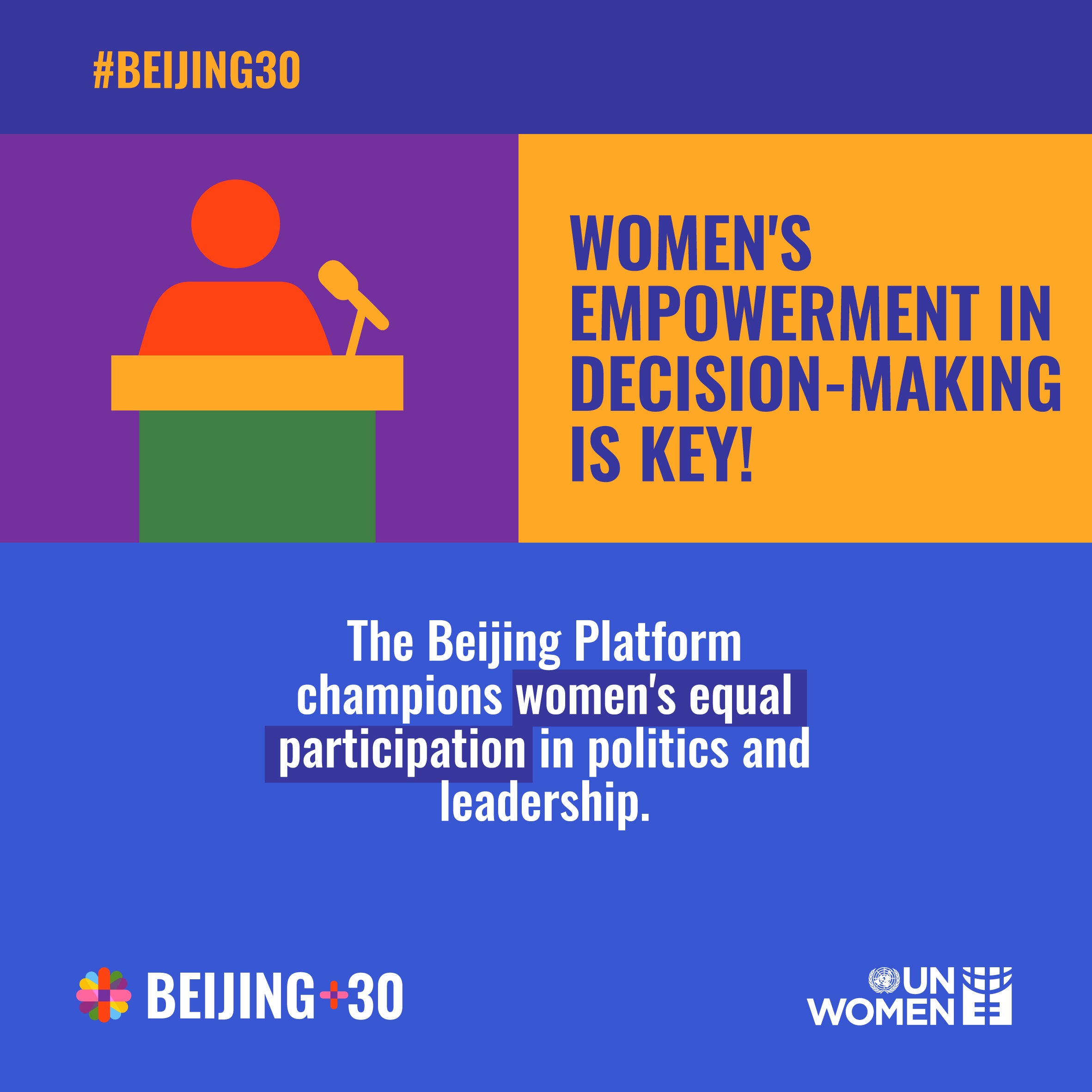
Featured Publication
Poster: Women Political Leaders 2024
UN Women’s latest global data on gender parity across leadership positions reveals that women remain seriously underrepresented in decision-making in Asia and the Pacific. For example, while women account for 32.5% of Cabinet ministers in Europe and Northern America, this share is just 16% in Oceania and 15.3% in Eastern and South-Eastern Asia. Read more
Featured Publication
Advancing Inclusive Governance in Asia and the Pacific (2022-2027)
The Asia-Pacific region has some of the lowest rates of women’s representation in parliaments in the world, with 21.2 per cent in Asia and 6.0 per cent in the Pacific Islands. Gender inequality in the region translates into weaknesses in existing governance systems and may also contribute to a deepening trust crisis between people and the institutions ... Read more
